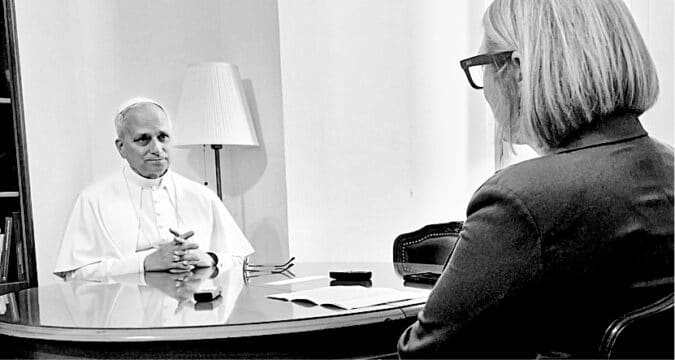
HONG KONG (SE): In his first interview since being elected, Pope Leo XIV has indicated that he may be open to future adjustments to the Vatican’s agreement with China, stressing that he is listening closely to persecuted Chinese Catholics as he discerns the way forward for the Church’s mission in the country.
The wide-ranging interview, conducted in English in July and published on September 18 in a Spanish-language biography, offers the clearest view yet of the 70-year-old American Pope’s priorities in global politics and Vatican diplomacy. It touches on his approach to the Trump administration, the ongoing war in Gaza, and the defence of human dignity.
On the sensitive question of China, Pope Leo underlined that he is seeking guidance from Catholics who have endured years of hardship in living their faith freely.
“I am listening to a significant group of Chinese Catholics who for many years have lived some kind of oppression or difficulty in living their faith,” he said, noting that he is striving “to get a clearer understanding of how the Church can continue the Church’s mission.”
“In the short term, I will continue the policy that the Holy See has followed for some years now,” the Pope added. “But I am also in ongoing dialogue with a number of people, Chinese, on both sides of some of the issues that are there.”
As the first Pope ever to have visited mainland China — long before his election — Leo XIV said he draws on his personal encounters with “government as well as religious leaders and laypeople” to inform his perspective.
…I am also in ongoing dialogue with a number of people, Chinese, on both sides of some of the issues that are there
Pope Leo XIV
His remarks hint at a possible evolution of the Vatican’s stance since 2018, when the Holy See and Beijing signed a provisional agreement on the appointment of bishops. The deal has been renewed three times under Pope Francis.
The Pope’s reflections were published in León XIV: ciudadano del mundo, misionero del siglo XXI (Leo XIV: Citizen of the World, Missionary of the 21st Century), a biography written by Crux correspondent Elise Ann Allen and released on September 18 by Penguin Peru. English and Portuguese editions are expected in 2026.
Q: Another global player that a lot of people are watching right now in terms of the influence it has is China. Pope Francis and many of your predecessors have adopted an Ostpolitik approach. Do you know yet what your own approach to engagement with China will be?
Pope Leo: No. I would say that in the short term, I will continue the policy that the Holy See has followed for some years now, and it’s been several predecessors. I in no way pretend to be wiser or more experienced than all those who have come before me. I’m also in ongoing dialogue with a number of people, Chinese, on both sides of some of the issues that are there. I’m trying to get a clearer understanding of how the church can continue the church’s mission, respecting both culture and political issues that have obviously great importance, but also respecting a significant group of Chinese Catholics who for many years have lived some kind of oppression or difficulty in living their faith freely, and without choosing sides.
On Ostpolitik, the choices that have been made to say in a realistic way, ‘this is what we can do right now, moving towards the future’, I’m certainly taking that into consideration, along with other experiences that I’ve had previously in dealing with Chinese people, in government as well as religious leaders and lay people. It’s a very difficult situation. In the long term, I don’t pretend to say this is what I will and will not do, but after two months, I’ve already begun having discussions at several levels on that topic.








